





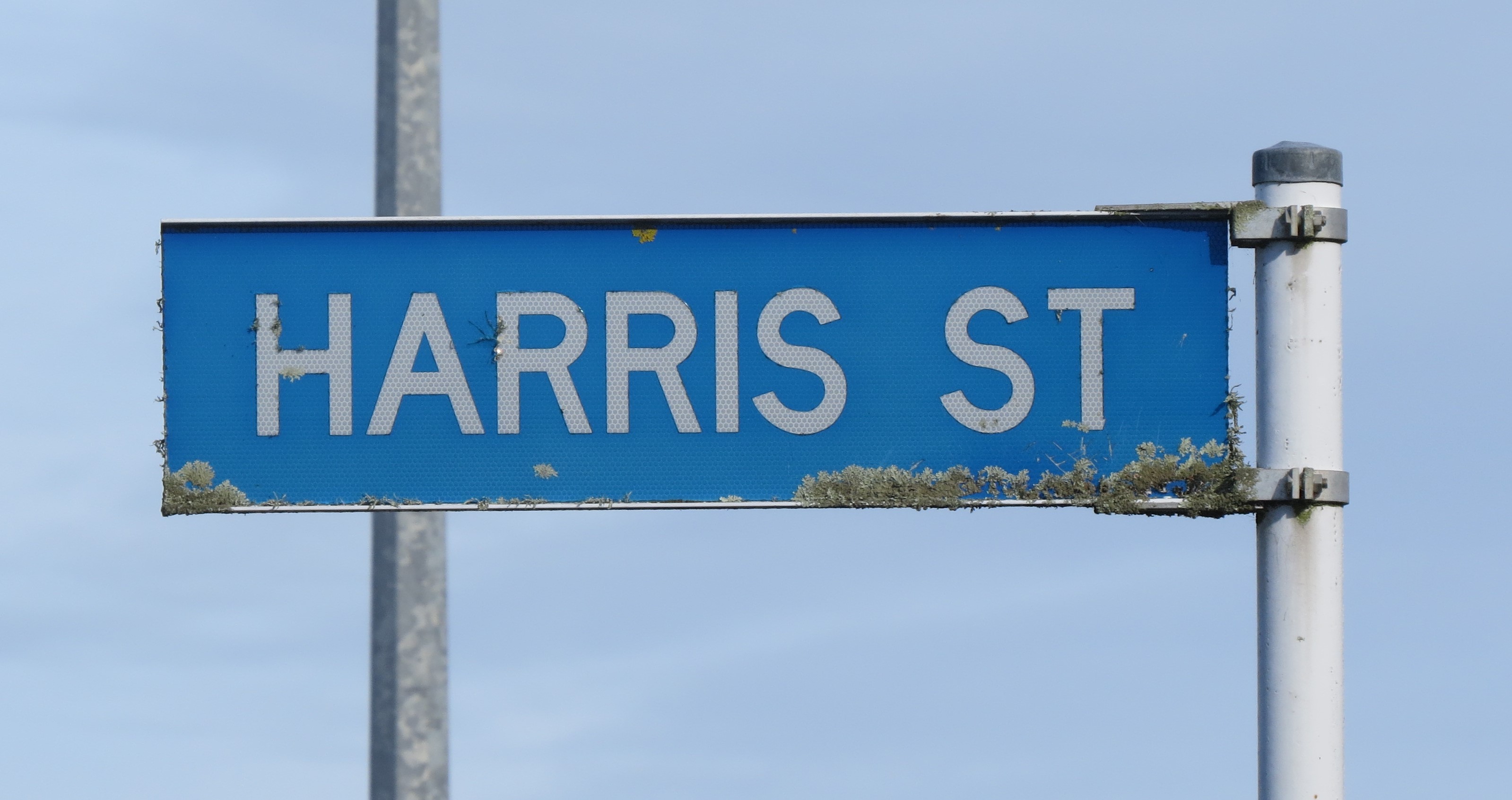
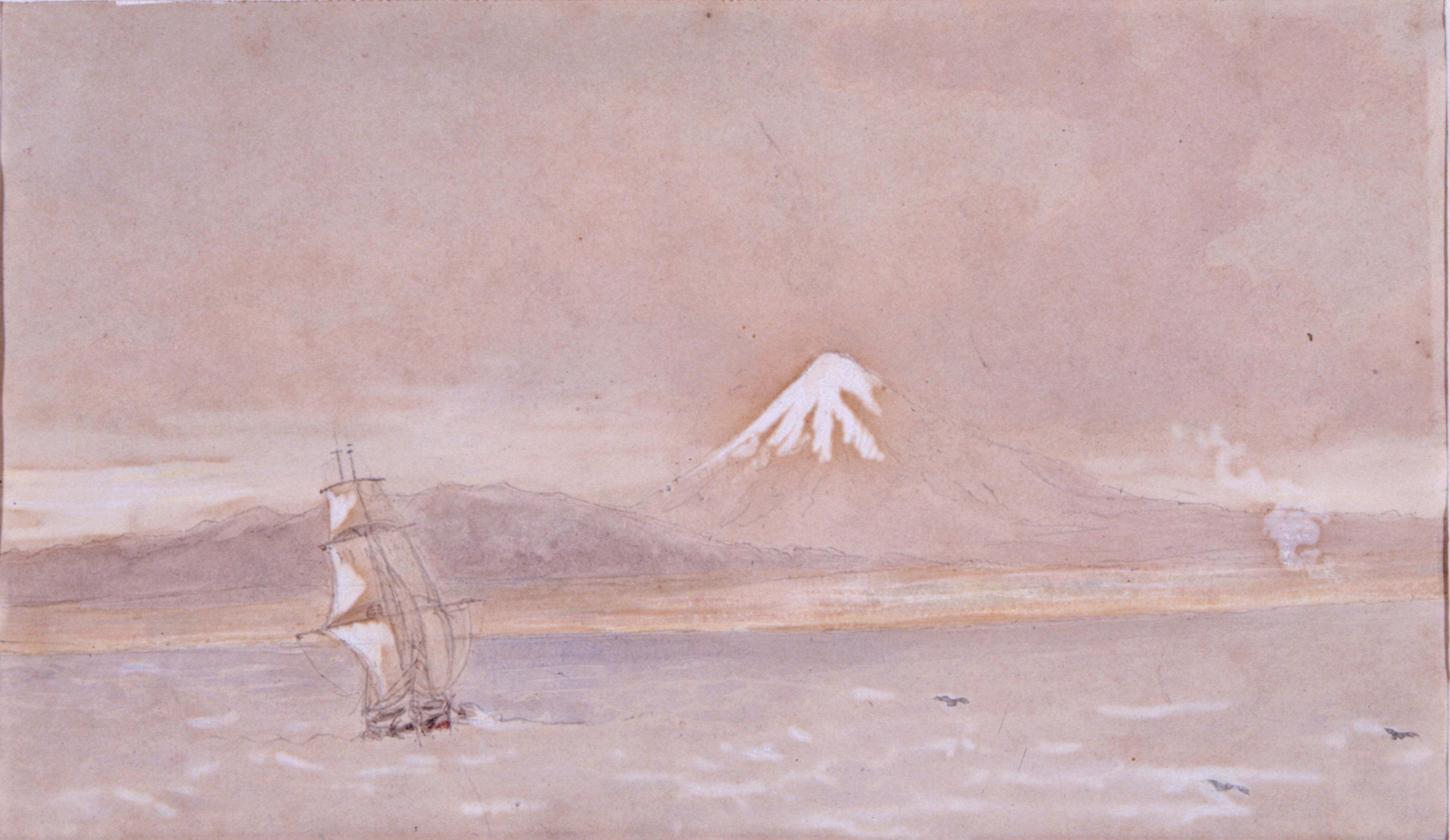
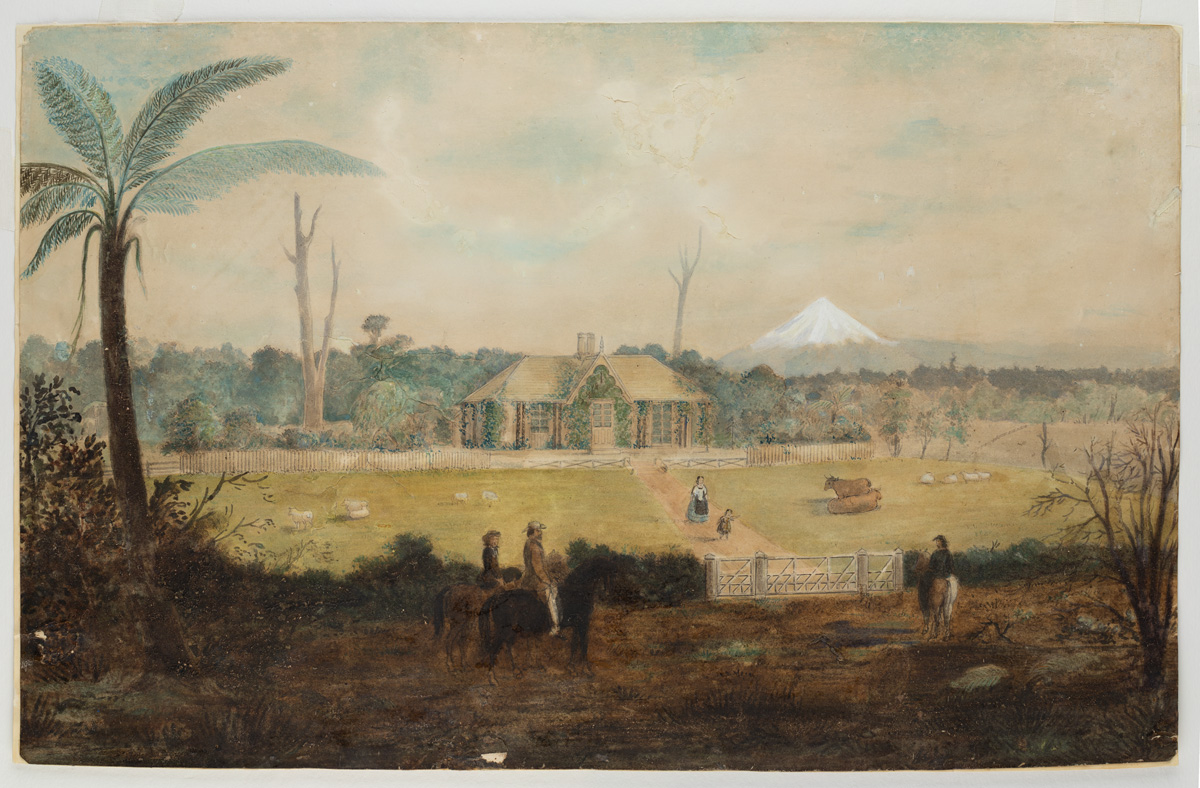
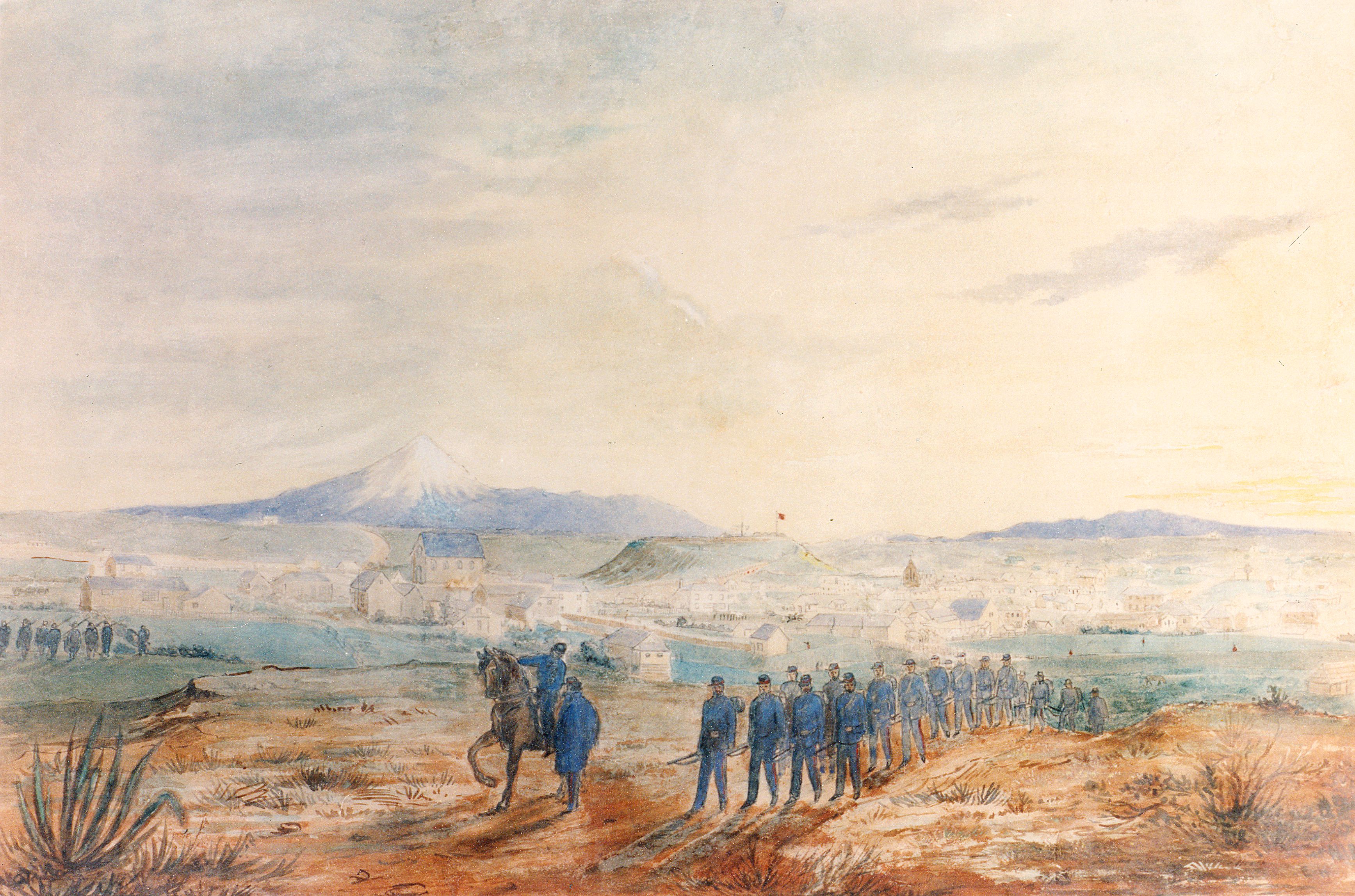
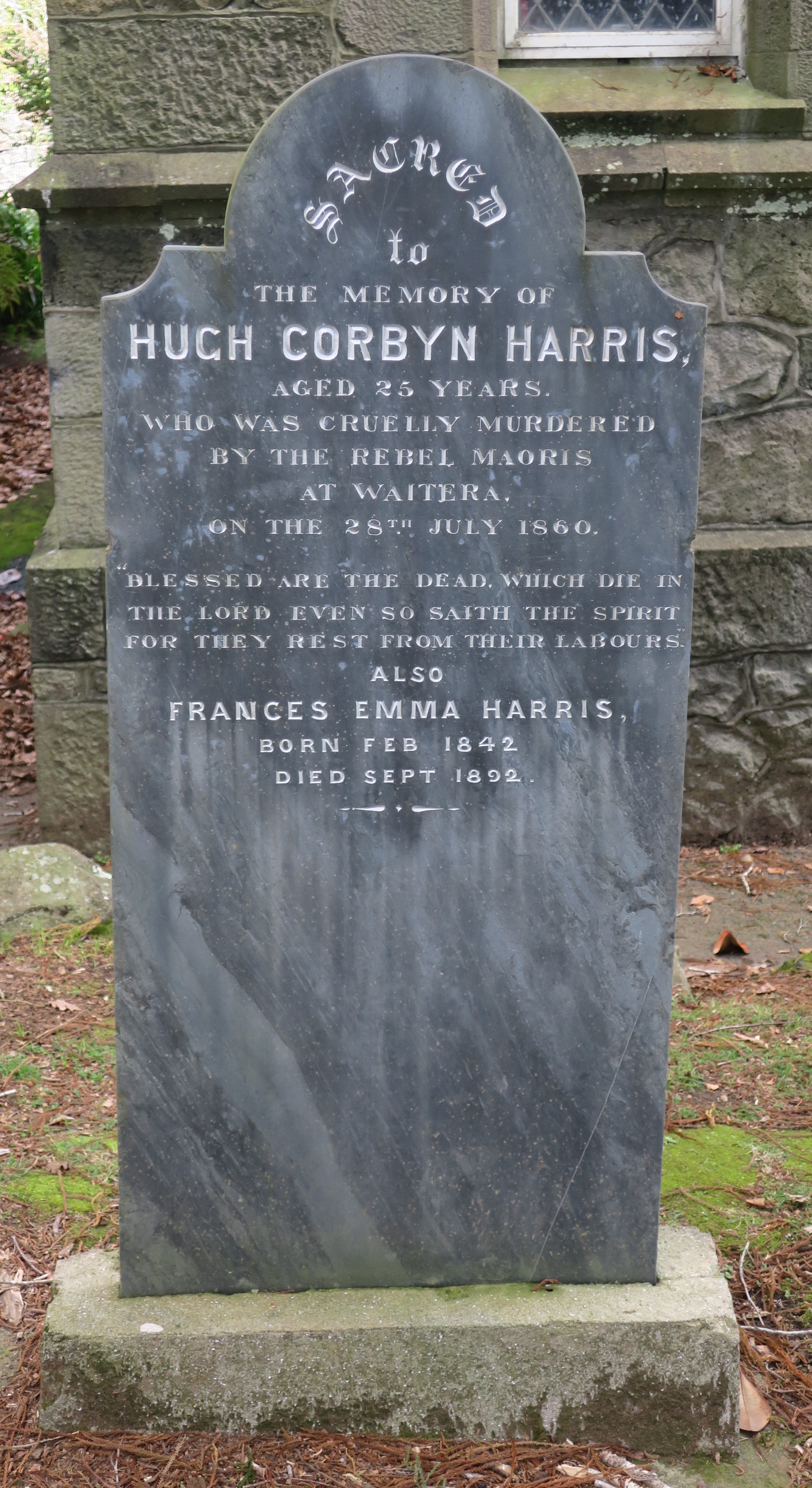
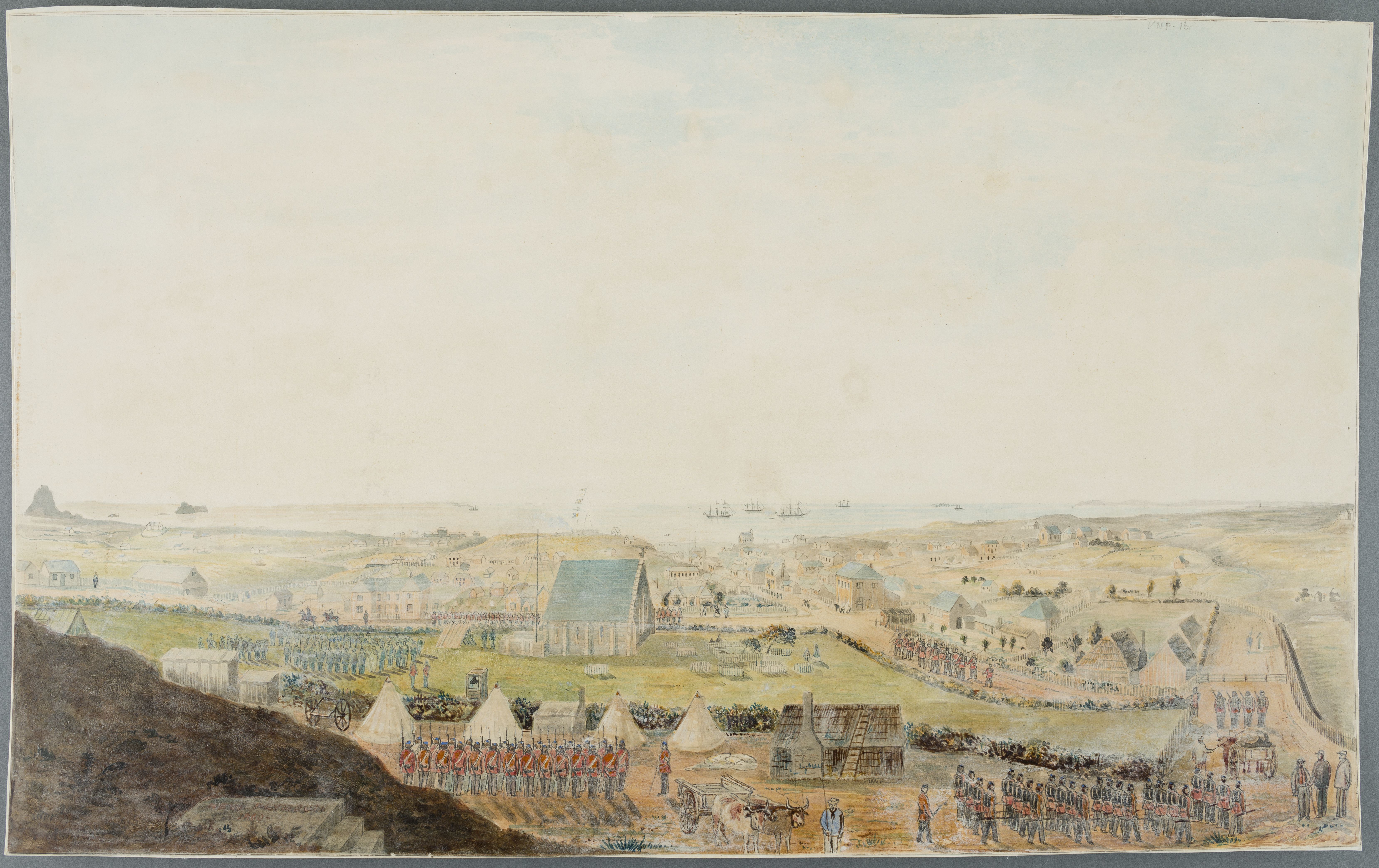
Harris Street in Waitara was named after a young man killed during the First Taranaki War.
Hugh Corbyn Harris, known as Corbyn, was born in Plymouth, England on 9 February 1835, the only son of Edwin and Sarah Harris. Corbyn had six younger sisters, one of whom, Emily, went on to become a well-known artist. The family immigrated to Taranaki on the ship William Bryan in 1841. Edwin, himself an accomplished artist, worked as a surveyor and the family farmed on Frankley Road until the First Taranaki War broke out. Corbyn’s mother and five youngest sisters were evacuated to Nelson but Corbyn stayed behind to serve as a carter with the Taranaki Volunteer Rifles.
Corbyn was killed on 28 July 1860 while out collecting firewood near Waitara Camp. He and the soldier accompanying him were both unarmed when they were ambushed by a Māori taua or war party. Corbyn was shot in the head and chest but the soldier (some reports indicate there were two soldiers present) escaped unharmed. His body was brought to New Plymouth by boat and buried in the churchyard of St Mary’s (now Taranaki Cathedral) on 31 July. The death of “a most respectable young man” terrified the Pākehā community, who numbered less than 2700 and believed themselves surrounded.
Corbyn’s headstone was originally a simple wooden cross but is now made out of slate believed to have been sent specially from Devon. It describes him as “cruelly murdered by the rebel Maoris” but the Harrises rejected this aggressive language and did not call for his death to be avenged like many others in the town. Copies of Corbyn’s funeral sermon, delivered by Reverend Henry Wollaston, were printed and sold to raise money for his unmarried sisters. Netana, a Waikato chief who the Taranaki Herald reported “used to boast of having killed Corbyn Harris”, was shot dead the following year.
Edwin Harris painted a commemorative view of New Plymouth under siege from Pūkākā/Marsland Hill in August 1860, before he too left for Nelson. St Mary’s can be seen in the background, behind a line of Imperial troops and army tents, with the grave of his beloved son lying in shade.
This story was originally published in the Taranaki Daily News.
Please do not reproduce these images without permission from Puke Ariki.
Contact us for more information or you can order images online here.